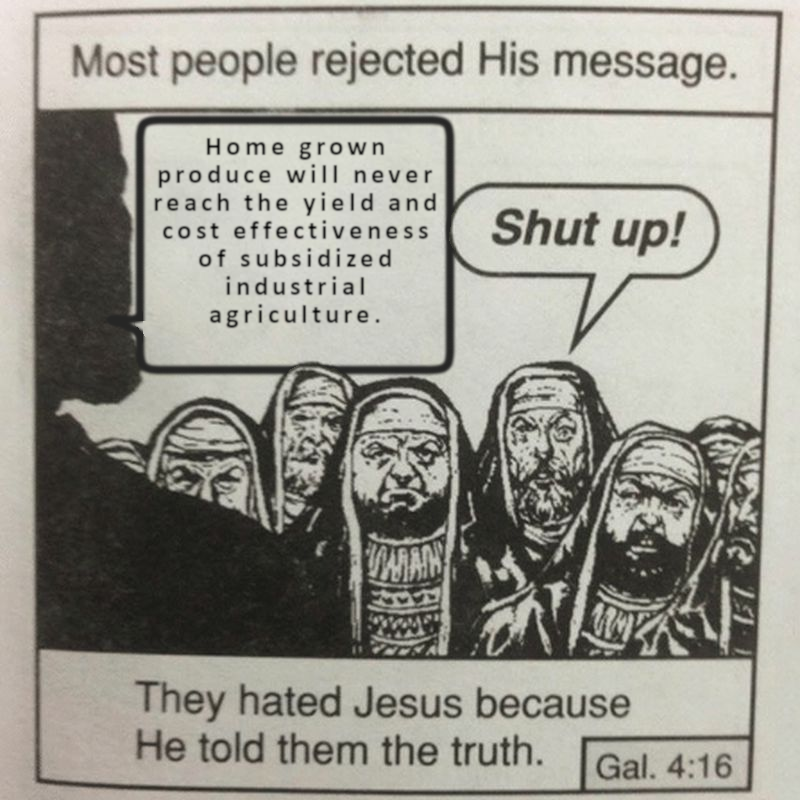this post was submitted on 13 May 2024
787 points (92.0% liked)
Science Memes
9194 readers
3729 users here now
Welcome to c/science_memes @ Mander.xyz!
A place for majestic STEMLORD peacocking, as well as memes about the realities of working in a lab.

Rules
- Don't throw mud. Behave like an intellectual and remember the human.
- Keep it rooted (on topic).
- No spam.
- Infographics welcome, get schooled.
Sister Communities
Science and Research
Biology and Life Sciences
- [email protected]
- [email protected]
- [email protected]
- [email protected]
- [email protected]
- [email protected]
- [email protected]
- [email protected]
- [email protected]
- [email protected]
- [email protected]
- [email protected]
- [email protected]
- [email protected]
- [email protected]
- [email protected]
- [email protected]
- [email protected]
- [email protected]
- [email protected]
- [email protected]
- [email protected]
- [email protected]
- [email protected]
- !reptiles and [email protected]
Physical Sciences
- [email protected]
- [email protected]
- [email protected]
- [email protected]
- [email protected]
- [email protected]
- [email protected]
- [email protected]
- [email protected]
Humanities and Social Sciences
Practical and Applied Sciences
- !exercise-and [email protected]
- [email protected]
- !self [email protected]
- [email protected]
- [email protected]
- [email protected]
Memes
Miscellaneous
founded 1 year ago
MODERATORS
you are viewing a single comment's thread
view the rest of the comments
view the rest of the comments

Is probably true. However, one should question their world view if they measure everything as a minimization problem with respect to cost efficience and yield.
I think it's less about ruthless efficiency and more about which system will enable even the poorest in society to have nutritious food.
as if this system has done so..
250 years ago people would rent pineapples for parties as status symbols because they cost $8000.
Nowadays the most expensive pineapple you can get is barely $400.
That's progress
If it helps, I could sell you a pineapple for more than that.
I'll have to see what my social status raising fruit budget looks like.
No you couldn't, they would never buy an 8000$ pineapple today because he could get one down the street for a couple bucks.
Is that Canadian toonies?
Not saying anything about the system, just about which farming method has the most potential to equitably distribute resources.
I get what you mean. Our system produces a ridiculous amount of quantity, which should be great! But in the context of where it's firmly placed within existing socioeconomics, stupid things happen like "destroying all the product to keep the value from crashing" and the "distribution problem" that feeding the poor isn't profitable.
Maybe industrial agriculture wouldn't be so terrible if food production for the human race didn't operate on the same metrics as handbags or funkopops. =\
I agree that commodifying food, especially locking nutrition behind class walls is barbaric. I also get that the current iteration of industrial farming is scary (don't get me wrong, it sucks shit) and that "small scale farming solutions just haven't been tried!" but clearly small scale farming is a long term fantasy that would take many decades of work and public acceptance, not even to mention the process of decommodifying the agriculture industry. All I'm saying is that if I'm playing in the same space, the method that would be the most environmentally friendly and efficient (not in an economic sense) is large scale industrial farms.
The other concern I have about small-scale farming I had, arose because I had this notion about "What if we could eliminate food deserts that are literally in the desert through household hydroponics?"
It sounded like such an awesome idea. Federated food! What a revolution!
But I also found out there's a ton that can go very wrong when you have no idea where food came from or how it is grown.
It's also my experienced opinion that a not-small percentage of the human population in this metropolis range from clinically insane to dangerously ignorant.
Industrial farming sucks in a lot of ways, but I'm also glad the (horribly underfunded) FDA and USDA exists.
Perhaps pushes for education in this field could go a long way? It seems outside of farming communities, food production is very much thought of as "farmers' work." and not much else.
Borlaug's green revolution of the mid-20th century did lead to a rapid reduction in famines across Asia and Africa...
I mean. It has? Even the poorest of the poor eat better than they did a couple hundred years ago
Well to be fair, that 3rd home in the Hamptons and a bigger yacht are not going to pay for themselves.